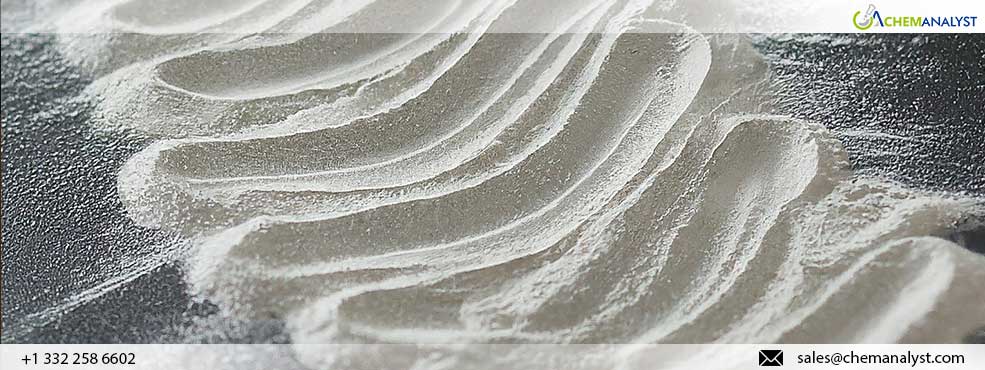Welcome To ChemAnalyst

During the week ending on 2nd August 2024, the Industrial Grade Calcium Carbonate market in the Netherlands exhibited a stable trend with a slight decline in prices. The decrease in the price of Calcium Carbonate was driven by a combination of factors, including a temporary slowdown in construction activity, seasonal demand fluctuations, and a surge in domestic production. Inventory adjustments and a slight drop in limestone (feedstock for Calcium Carbonate) prices further contributed to the price reduction, while increased exports from the Netherlands also played a role in enhancing supply availability.
Despite these factors, the overall demand for Industrial Grade Calcium Carbonate remained stable. On the supply side, a surge in domestic production due to enhanced plant efficiency and new capacities led to a market surplus, which, along with inventory adjustments of Calcium Carbonate by producers and a drop in limestone prices, pressured Calcium Carbonate prices downward.
The market saw a marginal decrease of 0.8%, a reduction of USD 2/MT from the previous week bringing the price to USD 238/MT FOB Rotterdam for Calcium Carbonate.
Calcium Carbonate prices slightly declined due to increased exports from the Netherlands, easing domestic supply, and improving port congestion across Europe. However, congestion persists in key Asian hubs, affecting freight rates, which dipped by 1% to 4% however hovered at high price. In Germany, the construction sector faces a crisis with a 24.2% drop in new build permits in May, driven by rising interest rates and inflation. It is anticipated that a significant recovery will require higher government spending and temporary economic measures.
Meanwhile, ABN Amro reported that the Dutch construction sector is expected to shrink by 2.5% this year, following a 2% decline in 2023, due to high interest rates, rising costs, and complex procedures. Housing construction is facing the most significant challenges, with a projected 6% decrease this year and a further 4% decline in 2025. Despite these ongoing challenges, the sector is expected to stabilize in 2025.
The Eurozone construction sector, especially in Germany, faces severe challenges with the July 2024 construction activities hitting a six-month low due to weak demand and high costs. In the Netherlands, the construction sector is set to shrink by 2.5% in 2024, following a 2% decline in 2023, with housing construction facing significant drops. Recovery is anticipated in 2025, to be driven by government investment and improved demand.
Looking ahead, the market for Calcium Carbonate is expected to remain stable, with prices potentially influenced by seasonal demand patterns, inventory adjustments, and global market dynamics. As the construction sector navigates its ongoing challenges, any significant changes in demand or supply could impact Calcium Carbonate prices. However, with government support and anticipated stabilization in the construction industry by 2025, the market outlook for Calcium Carbonate remains cautiously optimistic.
We use cookies to deliver the best possible experience on our website. To learn more, visit our Privacy Policy. By continuing to use this site or by closing this box, you consent to our use of cookies. More info.
